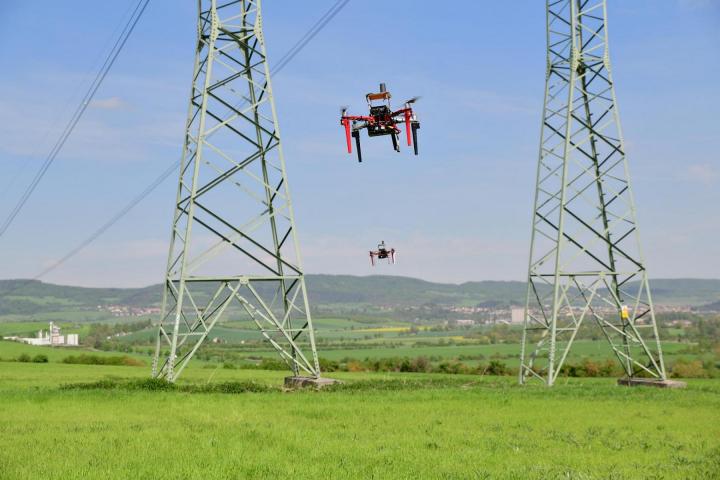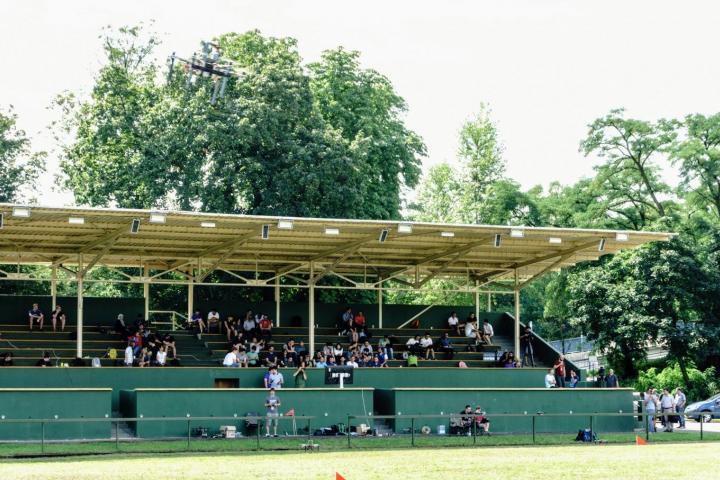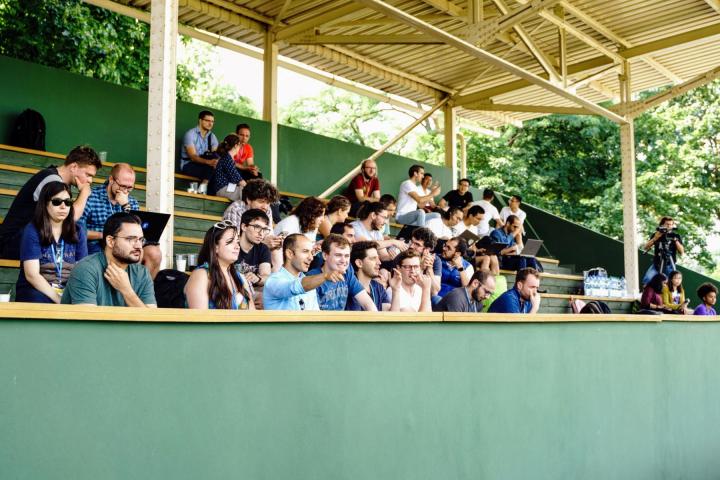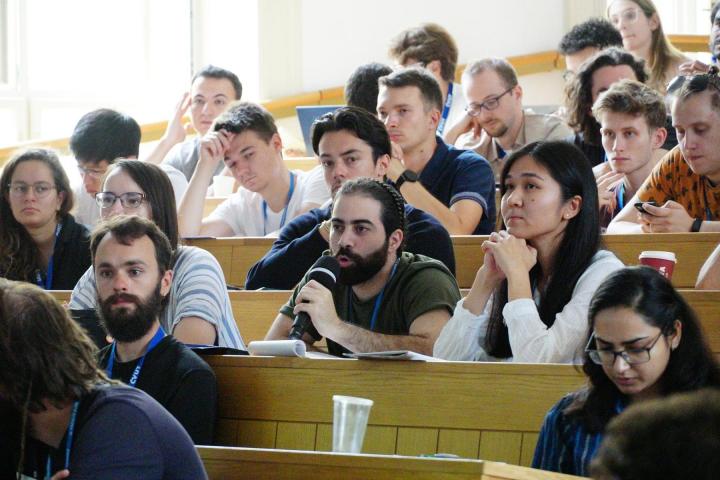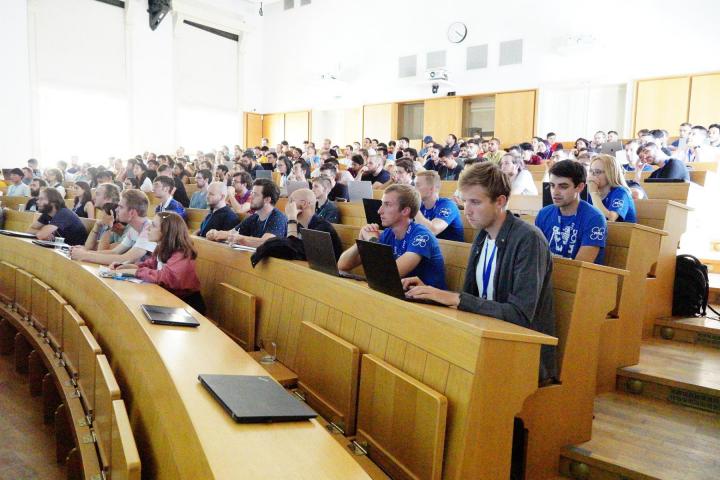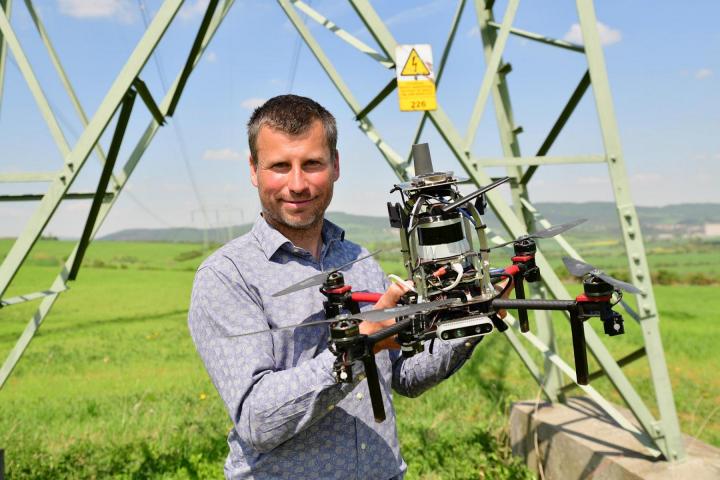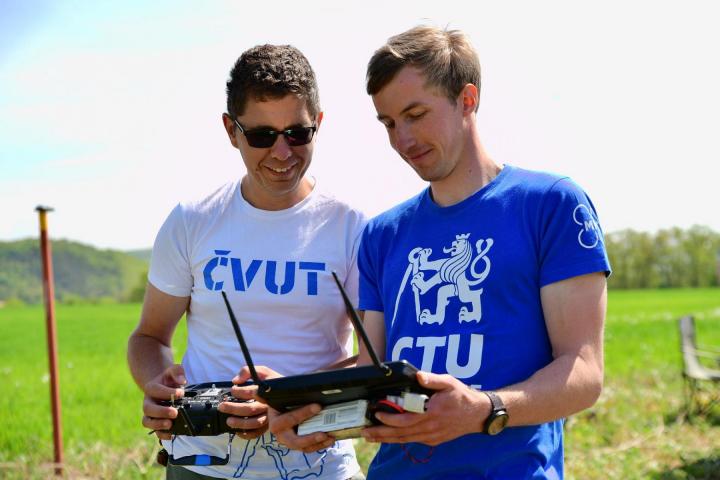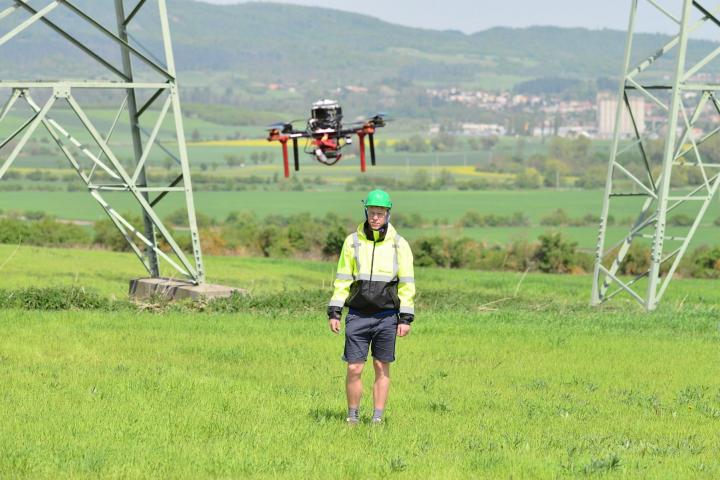170 students from six continents gathered in Prague on 1 August 2022 at Charles Square for the IEEE RAS Summer School on Multirobotic Systems. Another 40, who find it difficult to travel due to epidemiological regulations, joined them virtually.
Faculty of Electrical Engineering, who organized it has prepared an intensive program full of lectures, seminars and programming of cooperating drones for all those who want to deepen their knowledge in the field of multi-robotic aerial systems. After four days of theory, participants will apply the acquired knowledge in practical flight demonstrations on Friday, 5 August 2022, on Císařský ostrov, where they will use the state-of-the-art autonomous drone platform developed by the Multirobotic Systems Group of the Faculty of Electrical Engineering.
Groups of four will then test how well they have learned the methodology and transferred it to a fully functional robotic system in an outdoor experiment. "Their drones will compete with each other in the air to see who can complete the task faster and capture various elements of the power transmission system with a camera. They will fly between mock-ups of power poles, on which we are testing the practical possibilities of inspecting power lines with the help of flying robots within the European AerialCore project," explains doc. Martin Saska, head of the Multirobotic Systems Group at the Department of Cybernetics of the Faculty of Electrical Engineering of CTU.
The biggest attractions? MRS software, DARPA SubT Challenge winner and networking
For IEEE RAS Summer School participants from all corners of the world, both the reputation of the MRS FEL CTU team, which dominated the last unofficial World Drone Championship in Abu Dhabi, UAE in 2020, and the autonomous drones they will learn to fly are attractive. In particular, they stand out above competing platforms with software that enables truly autonomous flying behaviour. This allows them to safely navigate and interact with other robots even in environments without GPS signals, such as caves or unfamiliar indoor spaces. Their features make them ideal for deployment in special missions such as mapping historically valuable interiors, fighting fires in high-rise buildings, rescuing people, inspecting power lines or capturing enemy drones.
During the Summer School, which follows the two previous years after a one-year covid break, participants are accompanied by the best of contemporary robotics. Most notable is Konstantinos Alexis, currently a professor of technical cybernetics at the Norwegian University of Science and Technology, who with his team CERBERUS last year dominated the DARPA Subterreannean Challenge, widely regarded as the "Olympics of robotics teams". Together with colleagues from ETH Zurich, Prof Alexis also holds the world record for endurance flight in the under-50kg class of drones: their AtlanticSolar aircraft has been airborne for 81.5 hours.
The CTU-CRAS-NORLAB team, led by Prof. Tomáš Svoboda, Head of the Department of Cybernetics at FEL, whose presentation is also in the Summer School programme, has also been excelling in the DARPA competition for a long time. Young researchers and students were also addressed by doc. Martin Saska with the latest results of the development of fully autonomous compact swarms of flying robots with on-board artificial intelligence, on which MRS FEL CTU is cooperating with several leading world institutes. The line-up of lecturers also includes researchers from Boston University, Delft University, University of Seville and other leading international institutions.
The organisers of the Summer School also place great emphasis on the social dimension of the event. "After last year's covid break, this is the first event where young researchers can get together again and establish scientific contacts," says Martin Saska, who is pleased that some participants are returning to the Summer School to further develop their knowledge from previous years.
Among others, Antoine Milot, a PhD student from LAAS-CNRS, a research laboratory at the University of Toulouse, returned to the Summer School after two years. He develops algorithms for underwater robots and his participation in the Summer School allows him to keep in touch with major trends in the field of multi-robot systems. "It's a great opportunity for me to exchange experiences with people who are working on these challenges," says Antoine Milot, who also appreciates the quality of the presentations on today's most advanced robotics technology and the chance to try out new simulation environments, which he can then eventually use in his own research.
Among the participants there are also representatives of companies that see a perspective in drones and want to support their further development by participating in this event. This is the case of GoodAI, a company that develops artificial intelligence. "As part of our research into general artificial intelligence, we at GoodAI are working on collective intelligence and multi-agent systems. We used to focus mainly on the theoretical side, but we are now also looking at how we can apply these systems in practice. We think that the "state of the art" is already at a level where we can do interesting experiments and innovate quickly, and useful, practical applications can emerge, for example, in robotics right now. It is important for us at this stage to identify in which sectors collective intelligence and swarms would add the most value. In addition, drones and robotics are something that my colleagues and I enjoy a lot, so it is a logical step for us to delve more into this area," says Jaroslav Vítků, Senior Research Scientist, currently participating in the Summer School.
Video from summer school of MRS 2020 https://www.youtube.com/watch?v=RbBjJ9DjNg8
and MRS 2019 https://www.youtube.com/watch?v=m_AxZs-_DXI&t=9s
